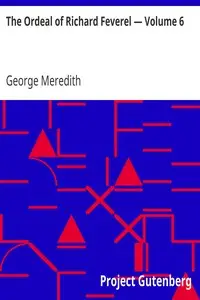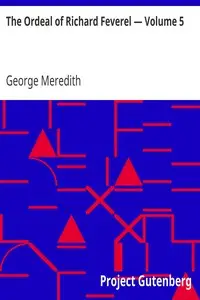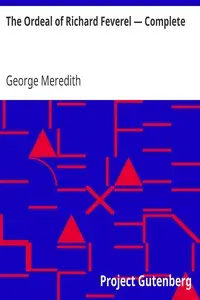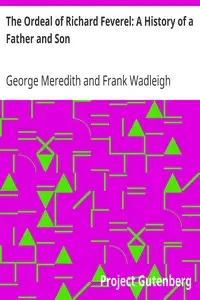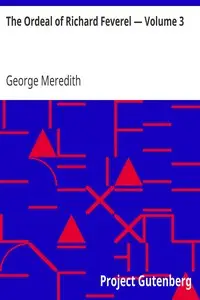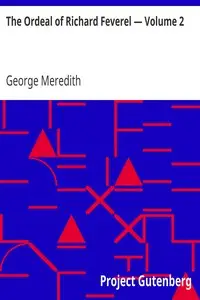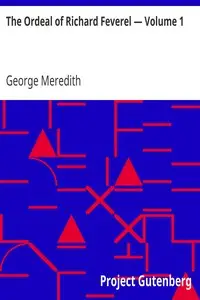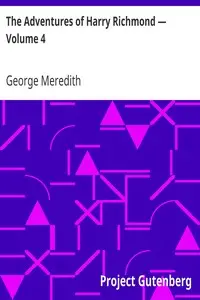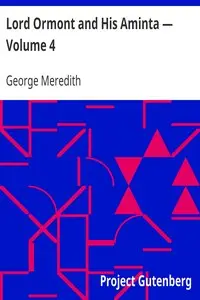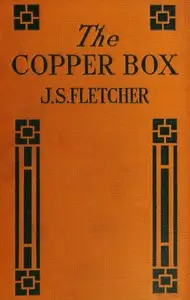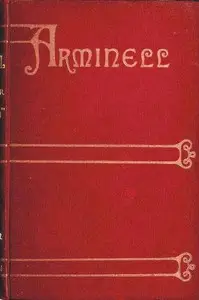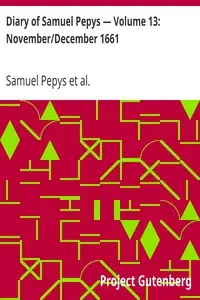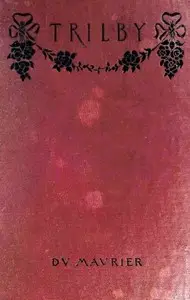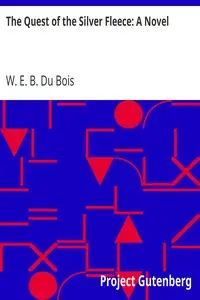"The Ordeal of Richard Feverel — Volume 4" by George Meredith is a late 19th-century novel that follows Richard Feverel through the complicated world of love, marriage, and growing up, digging into longing and what society expects in relationships. Beginning with preparations for a big wedding, Richard and his friend Ripton Thompson talk about love and happiness. The story shows Richard looking forward to marrying Lucy, mixed with worry, and Ripton wondering about love without really knowing it yet. Feelings mix with what people expect of them, creating a mood that is both hopeful and sad, especially when it comes of family problems and figuring out who they are. This setup suggests a big exploration of the difficulties of love, with a young main character facing problems from the outside world and inside himself.
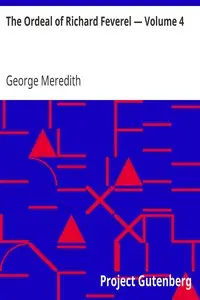
The Ordeal of Richard Feverel — Volume 4
By George Meredith
Amidst wedding preparations and heartfelt talks, a young man grapples with love's promise, social expectations, and his own identity, setting the stage for a journey filled with romantic and personal trials.
Summary
About the AuthorGeorge Meredith was an English novelist and poet of the Victorian era. At first, his focus was poetry, influenced by John Keats among others, but Meredith gradually established a reputation as a novelist. The Ordeal of Richard Feverel (1859) briefly scandalised Victorian literary circles. Of his later novels, the most enduring is The Egoist (1879), though in his lifetime his greatest success was Diana of the Crossways (1885). His novels were innovative in their attention to characters' psychology, and also portrayed social change. His style, in both poetry and prose, was noted for its syntactic complexity; Oscar Wilde likened it to "chaos illumined by brilliant flashes of lightning". Meredith was an encourager of other novelists, as well as an influence on them; among those to benefit were Robert Louis Stevenson and George Gissing. Meredith was nominated for the Nobel Prize in Literature seven times.
George Meredith was an English novelist and poet of the Victorian era. At first, his focus was poetry, influenced by John Keats among others, but Meredith gradually established a reputation as a novelist. The Ordeal of Richard Feverel (1859) briefly scandalised Victorian literary circles. Of his later novels, the most enduring is The Egoist (1879), though in his lifetime his greatest success was Diana of the Crossways (1885). His novels were innovative in their attention to characters' psychology, and also portrayed social change. His style, in both poetry and prose, was noted for its syntactic complexity; Oscar Wilde likened it to "chaos illumined by brilliant flashes of lightning". Meredith was an encourager of other novelists, as well as an influence on them; among those to benefit were Robert Louis Stevenson and George Gissing. Meredith was nominated for the Nobel Prize in Literature seven times.

